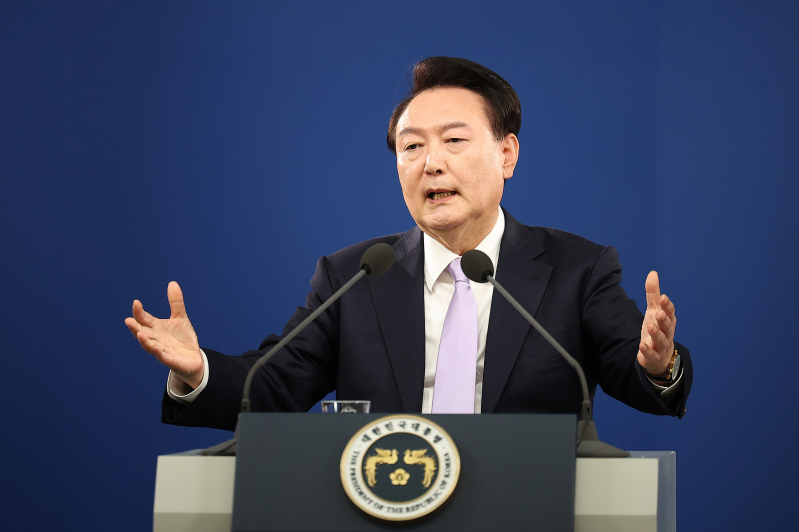
Update Dec 3, 11:15am EST: Reuters reports that lawmakers voted to invalidate the marial law order.
On December 3, President Yoon Suk-yeol declared martial law, marking a historic and controversial moment in South Korean politics, according to Christian Daily Korea. This is the first instance of martial law since 1979 and the first since the country’s democratization in 1987. The president characterized the legislative actions of the Democratic Party of Korea as insurrectionary and a direct threat to the nation's constitutional order.
In an emergency national address, President Yoon accused the Democratic Party of pursuing a "legislative dictatorship," extending to "budget impeachment," which he claimed undermines the Republic of Korea’s constitutional foundations. He described their actions as “clear anti-state behavior” and harshly criticized the National Assembly, asserting that it had become “a monster dismantling the liberal democratic system.”
The martial law declaration, according to President Yoon, serves two primary purposes: countering the threat from North Korean communist forces and rooting out pro-North, anti-state elements. He framed the decision as “an unavoidable measure to ensure the enduring survival of the Republic of Korea” and appealed to citizens for their understanding of the temporary inconveniences resulting from the law’s enforcement.
“As president, I place my trust solely in the people and dedicate my convictions to safeguarding the Republic of Korea,” Yoon declared, expressing his firm resolve in implementing the measures under martial law.
This unprecedented move is poised to send shockwaves through South Korea’s political and social landscape, marking a turning point in its democratic history. Reactions from political circles and the public are expected to shape the future discourse surrounding the balance between security and democratic principles.





